The majority of the American public are still in favour of it, but the legislators that they elect and the lawmakers that interpret their laws are increasingly more queasy over the death penalty.
The US state killed more people last year (35) as a form of punishment than any other industrialised nation by far. It killed more people than all but four other countries - China (550), Iran (289), Saudi Arabia (90) and Iraq (61).
The US killed more people than Africa’s largest user of the death sentence, Sudan, which under Sharia law allows the state to hang people for adultery, sodomy and even changing ones religion (apostasy).
All but one country in Europe has long abolished the death penalty (only Belarus still has the death penalty and they shot three people dead last year), while just 22 countries worldwide executed people last year.
In its own continent, the US stands almost alone as only itself and St Kitts and Nevis - the tiny Caribbean jurisdiction with a police force just 300 strong - have killed convicted criminals: and St Kitts last did so seven years ago.
In 2015, already 24 people have been executed in the US, and a recent ruling by the Supreme Court over the legitimacy of lethal injection drugs has opened the way for a number of slated executions to take place in the next month.
But there is change in the air as legislators and politicians are beginning to show a hitherto unseen squeamishness for capital punishment, despite a recent poll by Gallup stated that 61 per cent of Americans were still in favour.
MORE NEWS, MORE ANALYSIS IN THE TABLET...
Read full analysis and comment on all the latest stories in this week’s print edition of The Tablet. To subscribe click here
That those in favour of state executions has fallen steadily since a high of 80 per cent in 1994 may be convincing US legislators that the days of the state being able to kill convicted criminals with impunity are close to over.
Christianity has been playing its part: in a country where more than 70 per cent of the population claim to be Christian, what religious leaders like Pope Francis advocate has a value.
The US Catholic Bishops Conference has long campaigned against capital punishment, and earlier this month they were joined by almost 100 religious leaders across faiths who expressed their distate at the use of the Bible to push for the death sentence in Louisiana.
And now the National Association of Evangelicals (NAE), which has long held the belief that killing people who do despicable things was God’s work has soften its language on capital punishment for the first time since 1972.
Where once they said: “If no crime is considered serious enough to warrant capital punishment, then the gravity of the most atrocious crime is diminished accordingly,” their president, Leith Anderson now admits, “A growing number of evangelicals call for government resources to be shifted away from the death penalty."
President Barack Obama - who was happy for his ticket for the White House in both 2008 and 2012 to include his advocacy of the death penalty - has now softened his language quite markedly.
Speaking to New York Times editor Bill Keller at the weekend he said: “I have not traditionally been opposed to the death penalty in theory. But in practice it's deeply troubling.
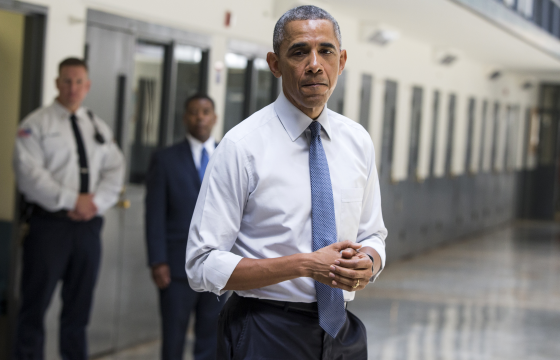 President Obama has softened his support towards capital punishment in recent months (PA)
President Obama has softened his support towards capital punishment in recent months (PA)
“We know that in the application of the death penalty we've had recent cases, by any standard, it has not been swift and painless but rather gruesome and clumsy," President Obama mused.
His Supreme Court is also beginning to envision a time beyond the death penalty in the US. The most senior judge on the Supreme Court, Justice Antonin Scalia said he would not be surprised if the nation’s highest court invalidates the death penalty.
He believed that recent death penalty decisions from the court have made it "practically impossible to impose it but we have not formally held it to be unconstitutional".
Meanwhile one of Justice Scalia’s colleagues Justice Stephen Breyer admitted this week that “there is a good case to be made" under the US Constitution against the death penalty. Justice Breyer suggested "that the court should hear the case".
Meanwhile, despite the law still allowing it it is getting tougher for the US to kill its prisoners. Already 19 states and Washington DC have no death penalty on their statute books. Of the remaining 31 states, 19 have some kind of moratorium in place; governors of four of those states - Pennsylvania, Washington state, Oregon and Colorado - have refused to sign death warrants; and one (Nebraska) will be holding a referendum to kill the death penalty next year.
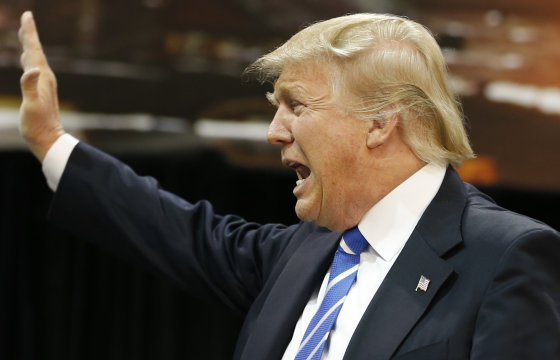 Republican candidate Donald Trump believes that the death penalty is an essential deterrent against crime (PA)
Republican candidate Donald Trump believes that the death penalty is an essential deterrent against crime (PA)
But it is still a politically difficult thing to stand up before an election in the US and claim to be an abolitionist. Virtually all those running for the presidency next year support the death penalty in one form or another.
The Republicans are generally hugely in favour of it - and some want the US to execute more people. Outspoken Catholic Rick Santorum is in favour, as is Rand Paul, despite his father, Ron, who stood for the Republican nomination in 2008 and 2012, being a fervent abolitionist.
The Democrats, meanwhile, are more in tune with Catholic thought on the death penalty. Bernie Sanders, Martin O’Malley and Lincoln Chafee all have a long record of abolitionism.
Which puts Hillary Clinton, the current front runner to hold the Democrat ticket and the odds on favourite to be voted President next year, between a rock and a hard place.
Mrs Clinton - as a young lawyer - helped save a black man with mental health issues from the electric chair in 1976, and is believed in private to be an advocate of ending the death penalty as an option for courts.
But by her 2000 campaign for the US Senate - the last time she spoke on the issue - she claimed that the death penalty had her “unenthusiastic support”.
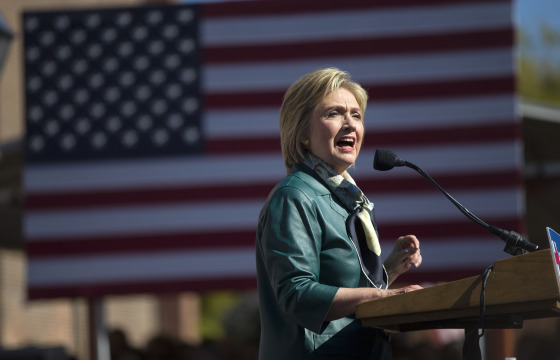 Hillary Clinton has been careful about advocating any support for abolishing the death penalty - despite any personal views she may have (PA)
Hillary Clinton has been careful about advocating any support for abolishing the death penalty - despite any personal views she may have (PA)
Mrs Clinton is a smart political operator and knows that she is vulnerable to be seen as “soft on crime” because of her liberal past.
To counter the threat to her presidential campaign of either a Jeb Bush (“All my political life I have supported the death penalty, as governor I have executed eight men”) or a Donald Trump (“I can’t believe that executing criminals doesn’t have a deterrent effect ... 100 per cent of the people who are executed never commit another crime) on the Republican ticket she has found herself pushed to the right.
But with a steady change in opinion in the US, she is slowly turned back towards her instincts. Last week she suggested that it “was time to change” the US’s approach on crime, but she has so far managed to avoid stating her position on the death penalty.
As the issue becomes headline news in the US it will become increasingly difficult for her to skirt the issue. When she does finally come down off the fence, there is no doubt she will be aiming to come down on the safe side.
Whether that is still the retentionist side is very much up for debate.
KEEP UP TO DATE ON TWITTER AND FACEBOOK...
Follow all the latest news and events from the Catholic world via The Tablet's Twitter feed @the_tablet
Or you can join in the debate at our community page on Facebook

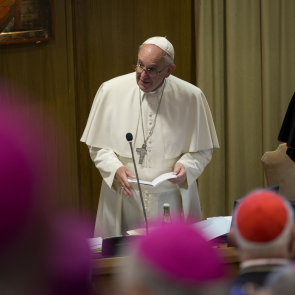
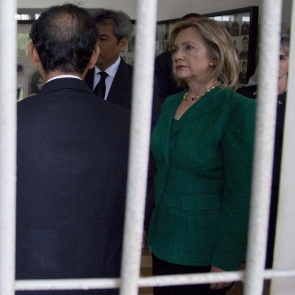

 Loading ...
Loading ...
What do you think?
You can post as a subscriber user ...
User comments (0)